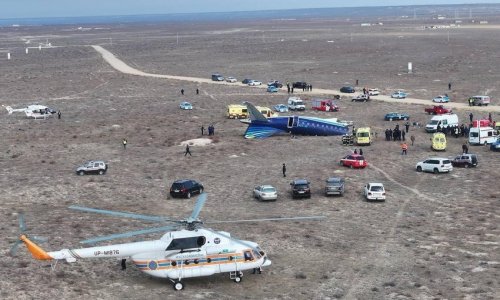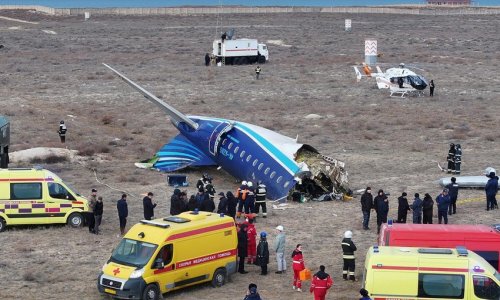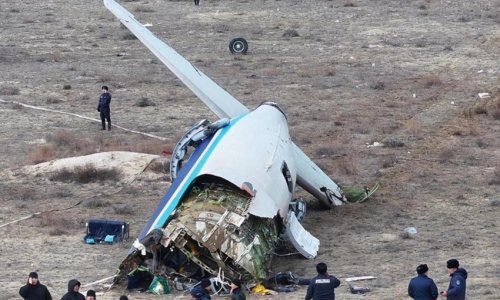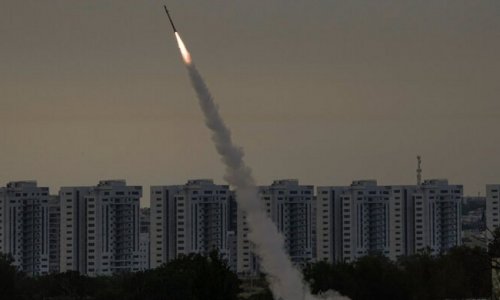Since then, the balance of power in the conflict has tipped in favour of President Bashar al-Assad, the death toll has mounted steadily, fighting has spilled into Lebanon, and jihadist militants from the Islamic State (IS) have formed a caliphate in a huge area straddling the border with Iraq.The BBC News website looks at how Syria's civil war has spread.21 August 2013Hundreds of people are killed when rockets filled with the nerve agent sarin are fired at several districts in the Ghouta agricultural belt around Damascus. The international community expresses outrage at the most significant confirmed use of chemical weapons against civilians since Halabja in 1988. Western powers say the attack could only have been carried out by Syria's government, but President Assad blames rebels.14 September 2013Facing the prospect of US military intervention, President Assad agrees to the complete removal or destruction of Syria's chemical weapons arsenal by a joint mission led by the UN and Organisation for the Prohibition of Chemical Weapons (OPCW) by 30 June 2014.Map showing Syria's chemical weapons facilitiesThe destruction of chemical agents begins in October 2013 and the first container of chemical weapons is transferred to a ship at the Mediterranean port of Latakia in January 2014.20 October 2013At least 30 people are killed by a suicide truck bomb blast at a checkpoint in the central city of Hama. The attack is one of at least 27 suicide bombings that take place in Syria during 2013, leaving some 400 people dead. Their frequency increases in line with the growth in power and influence of extremist jihadist groups like al-Qaeda's affiliate in Syria, the al-Nusra Front, and the Islamic State in Iraq and the Levant (Isis).November 2013Syrian government forces launch a large-scale air campaign on opposition-held parts of the northern city of Aleppo and its surrounding countryside. Unguided barrel bombs - typically constructed from oil drums, gas cylinders and water tanks, and filled with high explosives and scrap metal - are dropped indiscriminately from helicopters on densely-populated areas. The attacks kill hundreds of civilians.At least 22 people are killed in a double suicide bombing outside the Iranian embassy in the Lebanese capital, Beirut. An al-Qaeda-linked jihadist group, the Abdullah Azzam Brigades, claims responsibility and says it will continue attacks until Iranian forces leave Syria. Iran has sent advisers to help the Syrian military and is the main backer of Hezbollah, the Lebanese Shia Islamist group whose fighters have played a key role in helping turn the tide in President Assad's favour.30 December 2013Isis fighters and allied tribesmen capitalise on tensions between Iraq's Sunni Arab minority and its Shia Arab-led government by taking control of the city of Falluja and seizing parts of nearby Ramadi, the capital of the western province of Anbar. The move comes after Prime Minister Nouri Maliki, widely accused of pursuing sectarian and authoritarian policies during his two terms in office, orders security forces to break up anti-government protest camps. Hundreds of thousands of Iraqis are displaced by the violence.January 2014Syrian rebels from the Islamic Front, an alliance of hardline Islamist groups, al-Nusra and the pro-Western Free Syrian Army launch a joint offensive against Isis fighters, angered by their attacks on fellow rebels and abuse of civilians. Thousands of people are killed in the rebel infighting, which allows government forces to consolidate their control of southern and central Syria. Isis is pushed out of much of Aleppo province, but is able to hold on to its stronghold of Raqqa province.29 April 2014The OPCW launches a fact-finding mission to investigate allegations that chlorine gas has been used in more than a dozen attacks in rebel-held areas of Hama and Idlib provinces. In every case, barrel bombs were allegedly dropped from helicopters. After they exploded, casualties reportedly began displaying symptoms typical of chlorine poisoning. In June, the inspectors say they believe toxic chemicals such as chlorine are being used in a "systematic manner" in the Syrian conflict.8 May 2014Hundreds of rebels are evacuated from their last stronghold in the central Syrian city of Homs. The withdrawal from the Old City marks the end of three years of resistance in the city, once dubbed "the capital of the revolution". Much of Homs fell to the opposition in 2011, but over the next two years government forces gradually regained control by subjecting areas to continuous siege and bombardment.(BBC)Bakudaily.Az
How the Syria conflict has spread
World
11:15 | 22.08.2014

How the Syria conflict has spread
A year ago, a deadly chemical weapons attack on the outskirts of Syria's capital Damascus almost triggered US military strikes.
Follow us !










